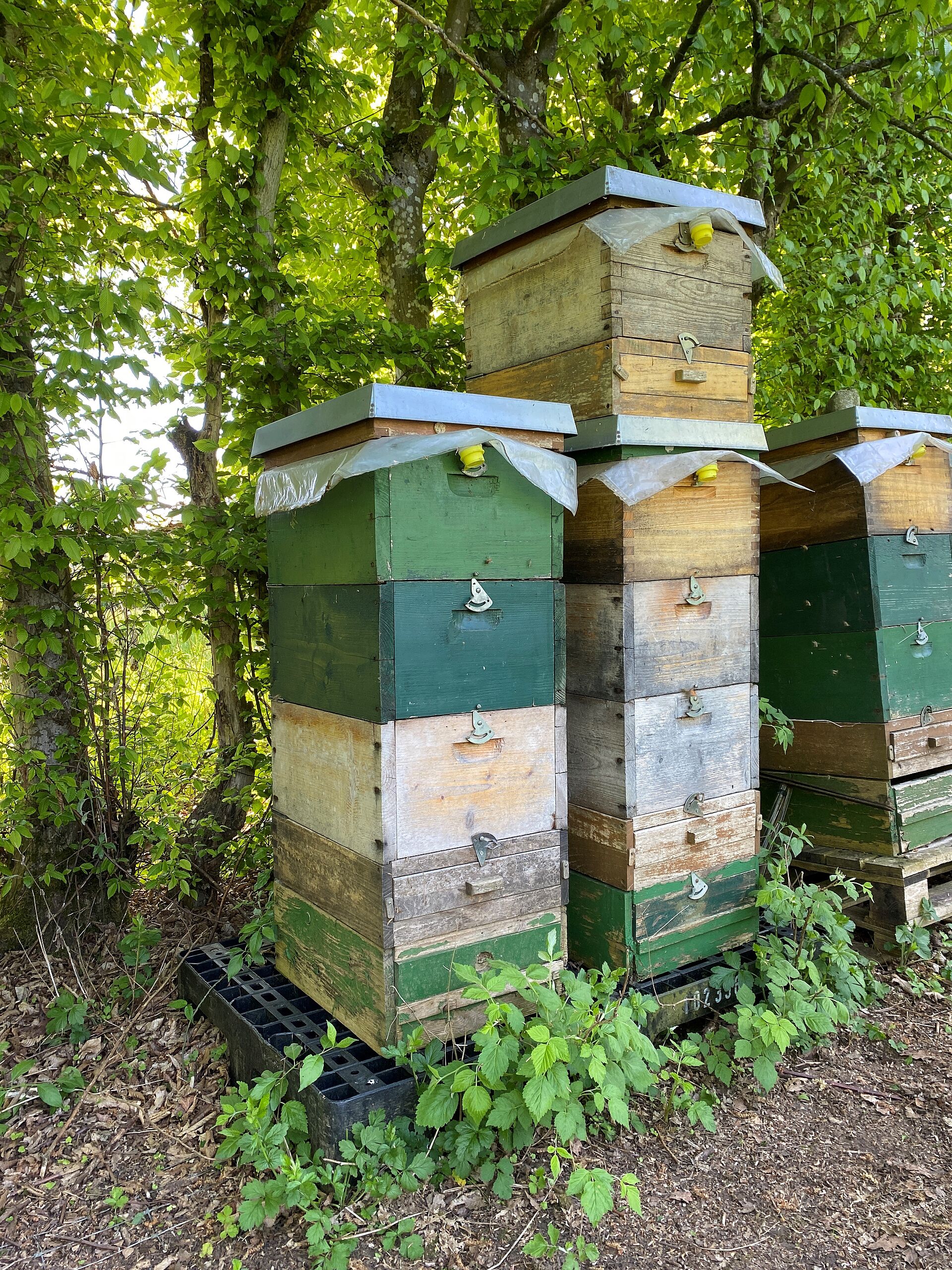Newsletter Welt-Bienen-Tag:
Zeit für mehr Königinnen!
Dear bee friends,
May 20th is World Bee Day.
Mid-May is also the ideal time to start new colonies. My strongest colonies already have two honey chambers and have been wanting to swarm since the beginning of May. If I don't keep these colonies busy and give them enough space, they want to multiply and lay queen cells. As soon as the queen has laid an egg in a queen cell, the time until swarm formation begins. “3-6-8 and the queen is made” means 3 days egg, 6 days larva and then another 8 days in the capped queen cell as a pupa before a young queen hatches.
As soon as the first queen cell is capped, i.e. after 9 days, the old queen could swarm out with the majority of the flight bees to make room for the young queen. As there is already enough honey in the magazine, the young colony has ideal conditions. The swarmed colony with the old queen is now looking for a new protected space to build combs and lay eggs again. During this time, the bees are particularly peaceful as they do not have to defend their brood or honey. So there is no reason to be afraid of a swarm of bees.
Als Imker will ich natürlich verhindern, dass die alte Königen mit den Sammelbienen schwärmt. Ich kontrolliere also im Mai jedes Wochenende, ob Weiselzellen mit Eier vorhanden sind. Solange die Bienen die Drohnenwabe ausbauen und Eier darin vorhanden sind, besteht normalerweise keine Gefahr.
Wenn die Schwarmstimmung aber erstmal entfacht ist, lässt sie sich kaum noch aufhalten. Dann kann man als Imker z.B. den Schwarm vorwegnehmen, das heißt den Honigraum ohne Königin auf den Boden stellen und eine Weiselzelle dazu geben. Das Restvolk mit der alten Königin stellt man durch eine Folie getrennt darüber und lässt die Bienen über den Deckel ausfliegen. Die Flugbienen fliegen dann wie gewohnt in das Bodenflugloch zurück und der Scharmtrieb bei der alten Königin ebbt ab.
Daneben gibt es noch die Möglichkeit, einen Ableger mit der alten Königin, falls man sie findet, zu bilden:
Anyone can actually keep bees. But you also have to take responsibility when you keep living creatures. As a farmer, the beekeeper is also responsible for ensuring that the bees swarm as little as possible and that the neighbors are not disturbed.
Nevertheless, or precisely for this reason, the beekeeper must take care of the rejuvenation of the colonies and get them through the next winter in good health. I also have the opportunity to promote the gentleness and industriousness of the bees by selecting them for breeding.
To maintain genetic diversity this year, I produced my offspring from 3 different queens. However, I obtained most of the queen cells from the colony of a Carnica purebred queen from the Varroa Tolerance Breeding Association. Perhaps the breeding measures will succeed in shaking off the varroa mite.
In the meantime, the economic colonies take care of pollination and honey. Despite the unusually dry and cold weather, some colonies have already collected quite a bit.
By the way, I'm celebrating World Bee Day on May 31st together with the idyllic Holländer country nursery, the blooming oasis between Oberpfaffenhofen and Unterbrunn, with a bee showcase, the best honey offers and of course everything the bees need every day!
Be sure to drop by, maybe we'll see a young queen together!
Many thanks to all bee sponsors and partners for their support and all the best, especially health, happiness and confidence!
Your beekeeper
Michael Ruhdorfer

